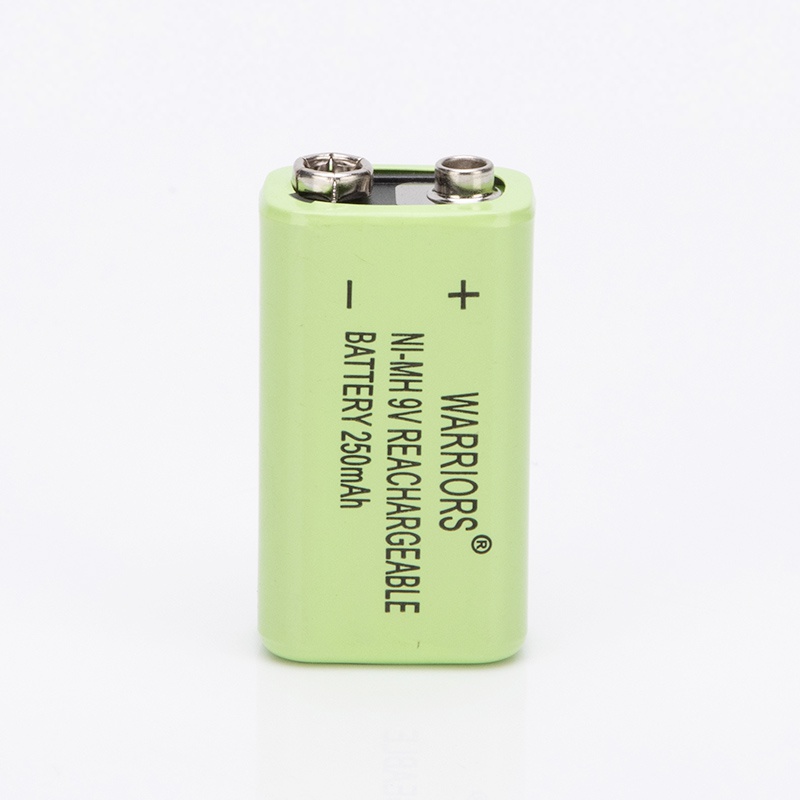Mar 20, 2025
With the rapid development of modern technology, small rechargeable batteries have become an indispensable part of daily life. From smartphones and laptops to wearable devices and medical devices, they provide long-lasting power for various portable electronic products. So, how much do you know about these batteries? This blog will explore the types of small rechargeable batteries, their application advantages, and how to properly maintain them to help you better choose and use them.
Part 1: What are small rechargeable batteries?
Small rechargeable batteries are portable energy storage devices that can be charged and discharged multiple times. Unlike traditional disposable batteries, they can be recycled, effectively saving costs and reducing environmental pollution. Due to their small size, light weight, energy saving and high efficiency, they are widely used in electronic products, medical equipment and small power tools.
Part 2: Main Types of Small Rechargeable Batteries
Based on different chemical compositions and application scenarios, small rechargeable batteries are mainly divided into the following categories:
1. Lithium-ion (Li-ion) batteries
• Known for high energy density, light weight and long life.
• Widely used in smartphones, laptops and other mobile devices.
• Fast charging speed and excellent battery life.
2. Nickel-metal hydride (NiMH) batteries
• Suitable for common household rechargeable batteries such as AA and AAA.
• Compared with traditional nickel-cadmium (NiCd) batteries, nickel-metal hydride batteries have larger capacity and are more environmentally friendly.
3. Nickel-cadmium (NiCd) batteries
• Known for high durability and resistance to extreme temperatures.
• Due to environmental regulations, its application is gradually decreasing.
4. Lithium polymer (Li-Po) batteries
• With a lighter, thinner and more flexible design, it is suitable for ultra-thin devices such as drones and smart watches.
• Similar performance to lithium-ion batteries, but safer.
5. Small lead-acid batteries
• Larger in size but lower in cost, often used in backup power systems and emergency lighting.
Part 3: Advantages of Small Rechargeable Batteries
Small rechargeable batteries play an important role in modern life due to their unique characteristics:
• Portability: small size, suitable for lightweight devices.
• Environmental protection: can be recycled to reduce the pollution of discarded batteries.
• Affordable: long-term use cost is lower than disposable batteries.
• Versatility: can be used in mobile phones, medical devices, smart homes and other fields.
Part 4: How Small Rechargeable Batteries Work
Rechargeable batteries rely on reversible chemical reactions to store and release energy:
• When charging: electrical energy drives electrons to flow in the opposite direction, storing energy in the battery.
• When discharging: chemical reactions release stored energy for use by devices.
Different types of batteries use different chemicals, such as lithium compounds or nickel-metal hydride alloys, to affect their energy density and lifespan.
Part 5: Lifespan of Small Rechargeable Batteries
Battery lifespan varies by type and usage:
• Lithium-ion batteries: about 300-500 charge-discharge cycles.
• NiMH batteries: typically 500-1000 cycles.
• NiCd batteries: more than 1000 times, but the "memory effect" must be avoided.
Regular maintenance, such as avoiding overcharging and extreme temperature environments, can extend battery life.
Part 6: Disadvantages of Small Rechargeable Batteries
Although rechargeable batteries have obvious advantages, they still have some limitations:
• Higher initial cost: Compared with disposable batteries, rechargeable batteries require a larger initial investment.
• Limited lifespan: Even if rechargeable, battery performance will gradually decline as the number of uses increases.
• Storage and recycling challenges: Some batteries (such as lithium-ion and nickel-cadmium) require special recycling treatment to prevent environmental pollution.
Part 7: How to properly maintain small rechargeable batteries?
Good maintenance can extend battery life and improve efficiency:
• Avoid overcharging and use smart chargers.
• Store in a cool and dry environment.
• Avoid complete discharge, especially for lithium-ion batteries.
• When not in use for a long time, it is recommended to charge and maintain regularly.
Part 8: Application scenarios of small rechargeable batteries
Small rechargeable batteries are widely used in many fields, including:
• Consumer electronics: mobile phones, notebooks, cameras, etc.
• Medical equipment: blood glucose meters, blood oximeters, hearing aids, etc.
• Wearable devices: smart watches, fitness trackers, etc.
• Tools and equipment: cordless drills, electric screwdrivers, etc.
• Toys and entertainment: remote control cars, drones, game controllers, etc.
Part 9: How to recycle small rechargeable batteries?
Battery recycling is crucial to environmental protection, and all countries have corresponding policies:
• Recycling points: supermarkets, electrical appliance stores, etc. provide recycling services.
• Classification and processing: Classify by type (such as lithium batteries, nickel-metal hydride) for professional recycling.
• Material recycling: extracting resources such as lithium, nickel, and cobalt for recycling.
Summary
Small rechargeable batteries have become the preferred energy solution for modern electronic devices due to their portability, high energy efficiency and environmental protection advantages. Choosing the right battery type and following the correct maintenance and recycling methods can not only improve the user experience but also reduce environmental impact. If you need high-quality small rechargeable batteries, please contact us for more detailed product information and customized solutions!
Read More
